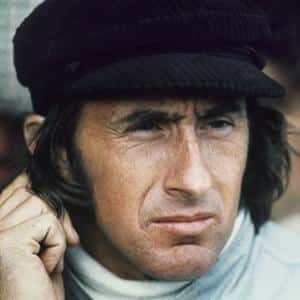Jackie Stewart : The Motor Sport interview
Three-time Formula 1 world champion Jackie Stewart recalls the joy and tragedy behind his final title victory while driving for Tyrrell in ’73
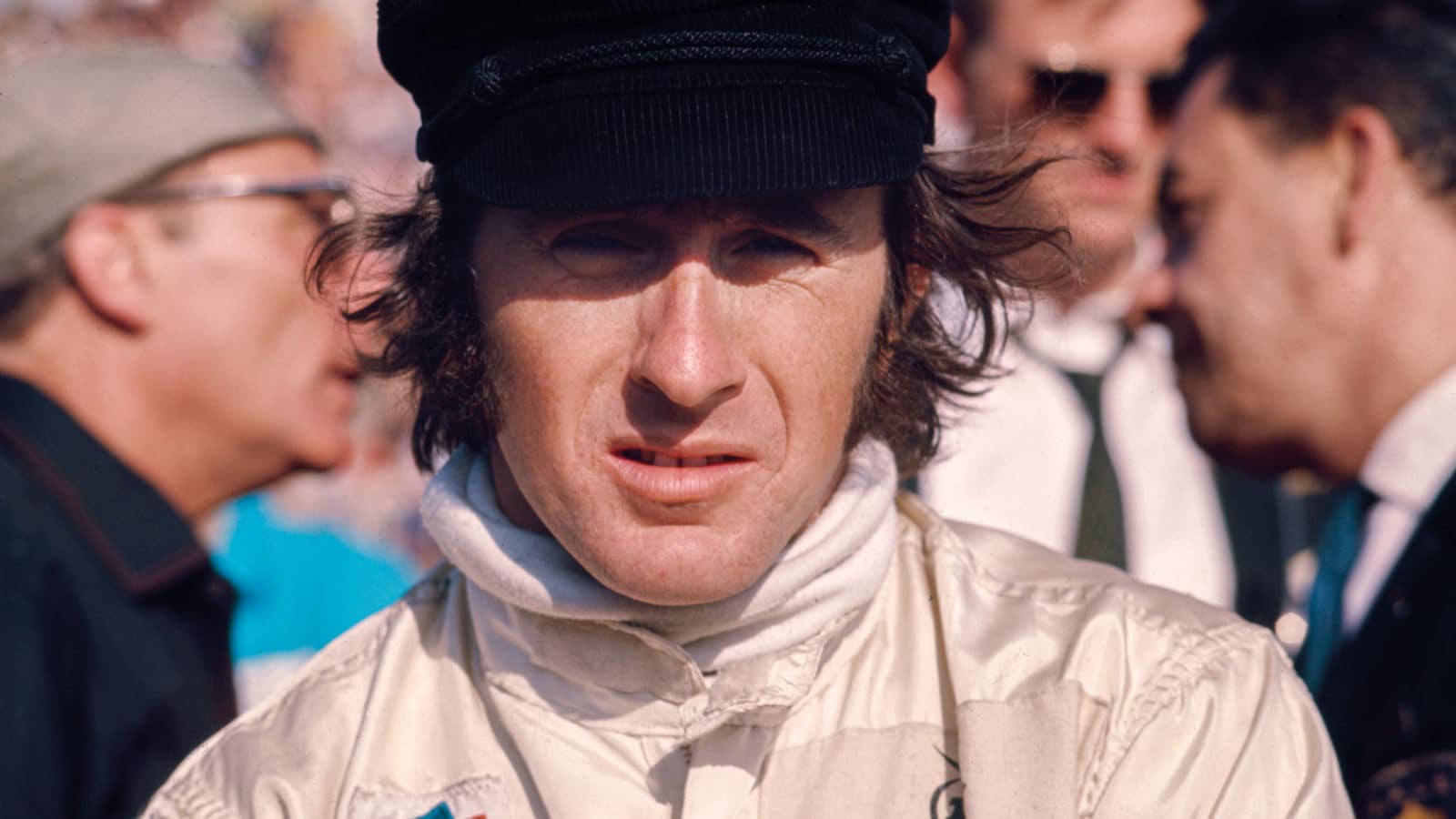
Stewart: an F1 champion and safety crusader
JEAN MICHEL LE MEUR/DPPI
I’s been 50 years since Jackie Stewart’s last – and to many greatest – season. Since then he has moved from driver to team owner, knight of the realm and latterly charity campaigner. Along the way he’s become one of the first sporting ‘brand ambassadors’ as the face of Rolex, a paddock fixer instrumental in getting F1 commercial deals across the line, TV commentator and most recently bodyguard to Martin Brundle whose honour he defended at the Miami GP and in so doing becoming, at 83, a social media sensation. He is also the oldest living F1 race winner.
To celebrate that final 1973 championship year, his best of times worst of times season, JYS sits down with Motor Sport and casts his mind back 50 years…
Motor Sport: At the end of 1972 you said you would focus entirely on Formula 1 for ’73, the stress of competing in so many other categories having taken its toll.
JYS: Yes, that’s true, I was exhausted, burned out by all the travelling, doing so many races as well as the world championship. At that time grand prix drivers weren’t paid a lot of money so, to make real money, we had to race in Can-Am, sports cars, touring cars, GT or Indianapolis. I crossed the Atlantic 68 times in one season to fit all these races in as well as Formula 1. Denny Hulme was doing the same thing. We never travelled first class. Denny was pretty tight and I was a Scot… We’d be first in line to get on the plane, put our luggage on as many seats as possible, so we could lie flat and sleep, especially on the way home. Other guys slept on the floor, but Denny and I preferred the softer seats. I’d had a duodenal ulcer, I’d had mononucleosis, and I thought, this was not for me any longer. I was simply burned out.
“We never travelled first class. Denny was tight and I was a Scot“
When did you make the decision to retire at the end of the 1973 season?
JYS: I decided in April, but I only told Ken [Tyrrell] and Walter Hayes and John Waddell from Ford, having invited them for lunch at Mark’s Club in Mayfair. I didn’t tell Helen or the children. I didn’t want her counting down the races until the end of that year. Ken kept it a secret, none of the mechanics knew, none of the other teams, until the end of the year when I told Helen on the Saturday evening at Watkins Glen after François Cevert was killed in practice. I told her, “I’m no longer going to be driving racing cars and I’m not doing the grand prix tomorrow.” Ken was keen for me to do the race but I said it would not be right because of François. On the Friday Ken had suggested it would be a generous thing to do, at my last race, if I let François win the grand prix on the Sunday. I told him, “That’s a big ask, but let me think about it.”
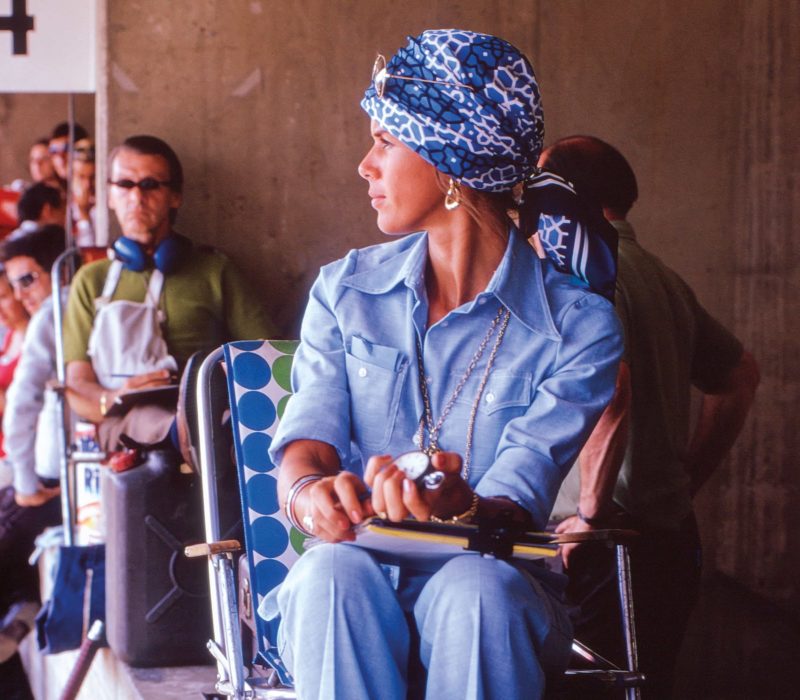
Jackie’s wife Helen with stopwatch and pencil.
DPPI
Of course there was then the terrible accident, terrible, awful to see what had happened, and we withdrew my car. When we got home we found out that our sons, Paul and Mark, who’d been staying with friends, had seen a TV report that said Jackie Stewart had died. That was a big deal, awful, but the report was corrected hours later. Jo Bonnier’s son Kim was at the same school in Switzerland and earlier in the year he’d said to Paul and Mark, “When is your father going to be killed? My daddy was killed in a racing car” – that’s what it was like in those days. So many drivers were dying.
“That’s not why I decided to stop. I was driving as fast as I ever had, but I just knew it was the right time for me to retire. And, you know, it’s still the best decision I ever made in my life.
How good was that Tyrrell 006 compared to the Lotus 72 of Fittipaldi and Peterson? It was one of those classic battles we all remember, wasn’t it?
JYS: Well, the Lotus was a faster car, but the Tyrrell was a better car although, with such a short wheelbase, it was very nervous. Honestly, I don’t think many people could have driven it as fast as I did, or François did. The Tyrrell was a strong car, more reliable, less fragile than a Lotus, because Colin Chapman was always working to save weight to get extra speed.
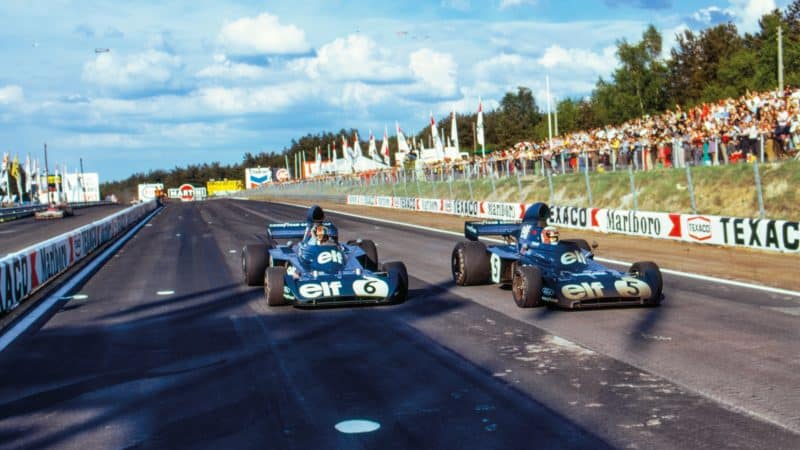
The 1973 Belgian Grand Prix at Zolder was a 1-2 for Tyrrell team-mates Jackie Stewart (No5) and François Cevert.
I’d raced a Lotus 33 in 1964, at the Rand Grand Prix at Kyalami, my first Formula 1 race. I was on pole for the first heat, then a driveshaft broke on the grid, but I won the second heat. I’d already signed for BRM but Chapman had asked me to stand in for Jimmy Clark, and I knew how good his cars were. Jimmy, by the way, had slipped a disc throwing snowballs at the launch of the Lotus Cortina, in Cortina, in the Alps. Anyway, a Lotus felt like it was riding below the track surface, the grip was so impressive, whereas the BRM was just on the surface. I told Tony Rudd at BRM, “That Lotus 33 is ridiculous” – so much grip in comparison to our car we’d been testing. Only a driver as incredibly smooth as Jimmy Clark could look after a Lotus. He didn’t have the mechanical failures others drivers had. I learnt from him not to drive aggressively.
“Only a driver as smooth as Jimmy Clark could look after a Lotus“
Derek Gardner had designed very good Tyrrells. He was a shy man, and modest, introverted in many ways, underrated I think, and I don’t believe he’s been given the credit he deserved. He and Ken got on together beautifully, working on the cars in that shed at Ockham. After he died we discovered that Derek had built a model of that Tyrrell, a superb model. Nobody had known about this, but it was later displayed in Ford’s main showroom in London.
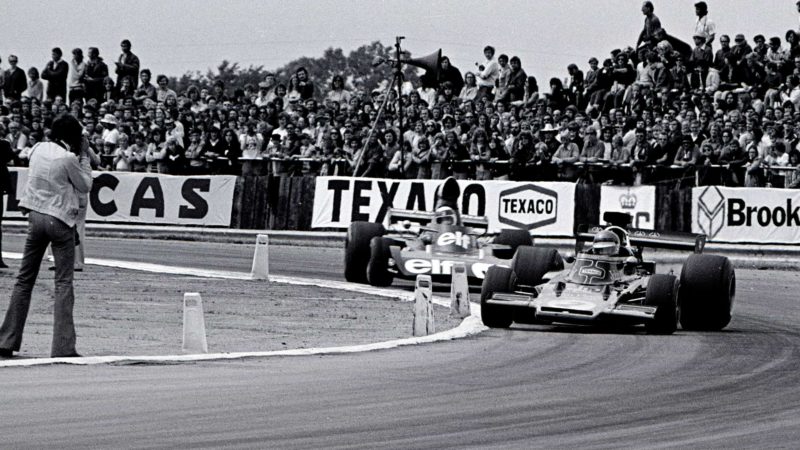
Stewart in the Tyrrell spars with Lotus’s Ronnie Peterson in 1973. Peterson secured nine poles to Stewart’s three in ’73 but retired six times
You won the world championship at Monza, coming fourth behind the Lotuses and a McLaren, which was enough to clinch a third title. You’ve told me it was one of your best ever races.
JYS: Yes, because a pitstop with a puncture dropped me to the back of the field. We didn’t do three-second pitstops in those days. I’d qualified sixth but the car was very good in the race and, coming back through the field, I was breaking the lap record, lap after lap. I think Ken was worried I’d be getting bored being so far down the order so he started hanging out funny signs like ‘-14 Fangio’, which spurred me on.
That race at Monza in ’73 was one of my best ever drives, a day when I was very satisfied with the way I raced from the back. I had a new lap record and even thought I might get a podium when I passed François Cevert for fourth place. It was just wonderful when I realised I’d won the championship. I was mobbed by the crowd and I’d wanted to win it before going to Canada and America. Ronnie Peterson or Emerson Fittipaldi could have won the championship in the Lotus 72 but they had a lot of non-finishes and I only had one, in Spain, and they were taking points off each other.
Over that season I had both the speed and reliability. Ken chose very good mechanics, the best, he looked after them, and they looked after me. I never drew blood in a racing car through all my years and, I tell you, I had the best mechanics in the world. Without them I would be dead.
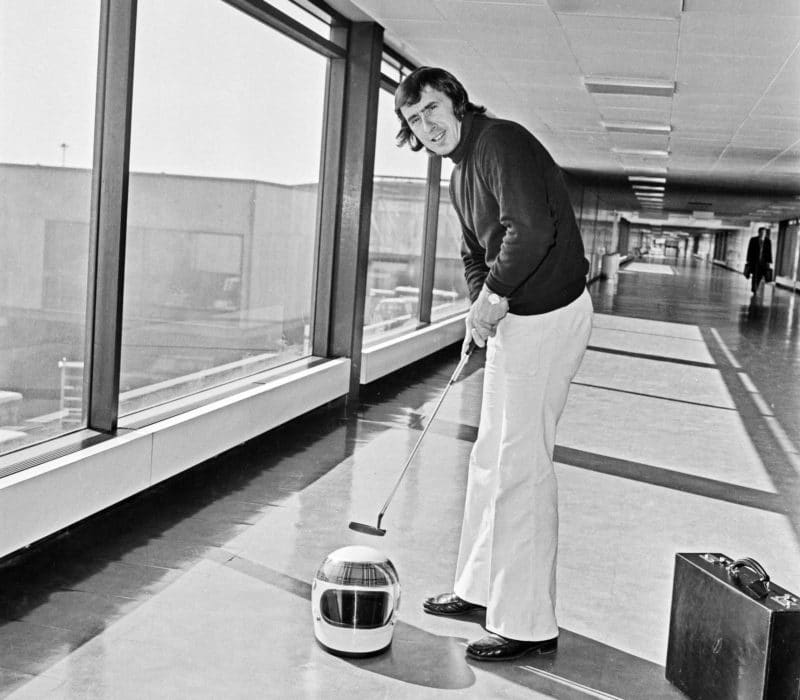
Jackie at Heathrow in 1973 – heading overseas to make “some real money”
Getty Images
How good was François Cevert in 1973? He was close to your pace a lot of the time.
JYS: Oh, yes, very close. He had some very good races, but not all the time. I think he could have beaten me when I won at the Nürburgring. He was less than two seconds behind me, and he was always desperately keen to learn. He was very quick, but it was still peaks and valleys, not consistent every race. Ken would have put him in as number one in ’74. He would have been a good team leader alongside Jody Scheckter, there’s no question about that. I taught François everything I ever knew. We spent a lot of time together. We were close friends, and Ken wanted me to help him.
“Ken would have put Cevert in as number one in 1974“
We would go out together on the track. He would follow me through the corners, stepping up the speed all the time, then we’d stop and have a chat. He was just so enthusiastic. He’d ask, “How did you do that round that corner?”, then we’d go back out. It took him a little while but by the end of ’73 François had it covered. He would have been a great Formula 1 world champion, even a multiple champion.
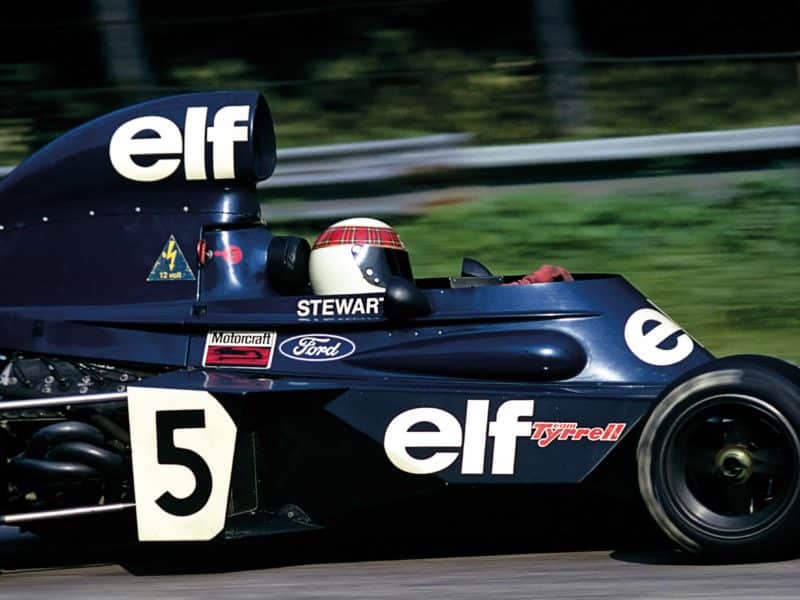
Stewart in his distinctive tartan helmet charged through the field from 20th at the 1973 Italian Grand Prix to finish fourth – giving the Scot his third F1 title
How did it feel, going to all those races in ’73, knowing that you were going to retire at the end of the year? Did that change your approach to racing?
JYS: No, not at all. I put it completely out of my mind. It didn’t affect my driving at all. I was racing as hard as I ever had, but it was nice to know that I could be retiring as the world champion. I will tell you, years earlier I’d met this Roman Catholic priest at Indianapolis, through John Mecom for whom I’d raced in the 500, and we got talking about how I was feeling very stressed at that stage of my career. I wasn’t a big church-goer but I believed in God and he asked me if I’d ever been confirmed. I told him no, and this priest confirmed me right there, in the Holiday Inn at Indy, and that was a big moment. For whatever reason, I knew right then that I would retire with no regrets, no tears, no excitement, just that I would know it was the right thing for me to do.
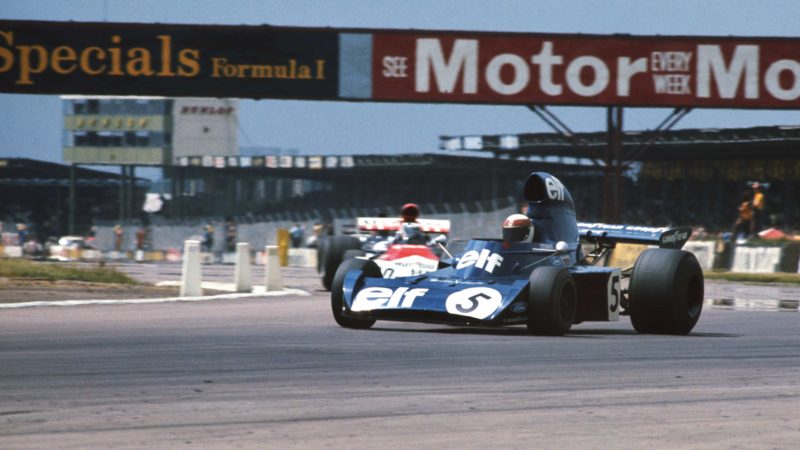
Stewart’s worst result in 1973 came at Silverstone – 10th after a spin.
Are you honestly telling me you were never tempted to make a comeback, to go for another championship?
JYS: Absolutely. At the end of ’73 not once did I feel that I’d lost anything by no longer being a racing driver and not once was I tempted to return. You might not believe this but even when I was later offered many millions to make a comeback, I thought, “That is a lot of money, but I don’t want to do it any more.” My career was long enough. There wasn’t one day when I thought I’d made the wrong decision.
I did drive occasionally, Formula 1 cars for Elf at Paul Ricard, but I never drove [an F1] Ferrari… although I had shaken hands with Enzo at Maranello to drive for him way back in Formula 2 in ’67 when Jacky Ickx and I were team-mates at Tyrrell. The only people who knew I’d been to Maranello were Shell and Ken Tyrrell but at the race in Sicily Jacky had found out and told me he’d also had an offer from Ferrari because the old man had said Jackie Stewart was too expensive. I told Jacky, “You take the drive.” I was a bit nervous about taking it anyway because I’d heard so much about how Enzo played his drivers off against each other. He’d told me, “Jackie, you will be my boy,” but I wasn’t so sure. He never forgave me for that and, over the years, every time I wanted to drive a Ferrari it was refused.
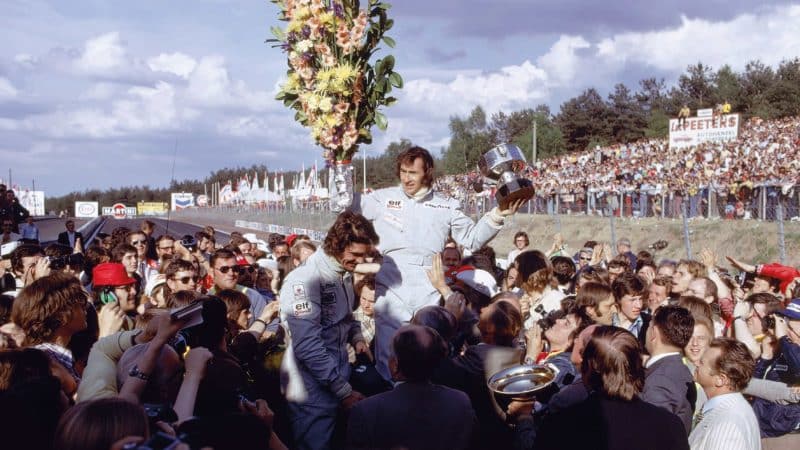
A very large bunch of flowers for his victory at Zolder
I will always remember meeting with him, in that very dark office at Maranello… just a light on the desk and a light over a picture of his son Dino.
Would you look back on 1973 as the best of your three world championships?
JYS: I don’t know about that… I mean they were all good years. I think I could have won in 1968 [Stewart finished second, behind Graham Hill] had I not had the fuel feed problem with the Matra at the last round in Mexico. I could have won that race.
Graham and I both won three races that year, and we were equal on points going into that last one but, funnily enough, I wasn’t distressed about it afterwards. I didn’t think I was ready to be a world champion, and Graham would be a better champion, especially for the media. So, you know, they were all good in different ways.
